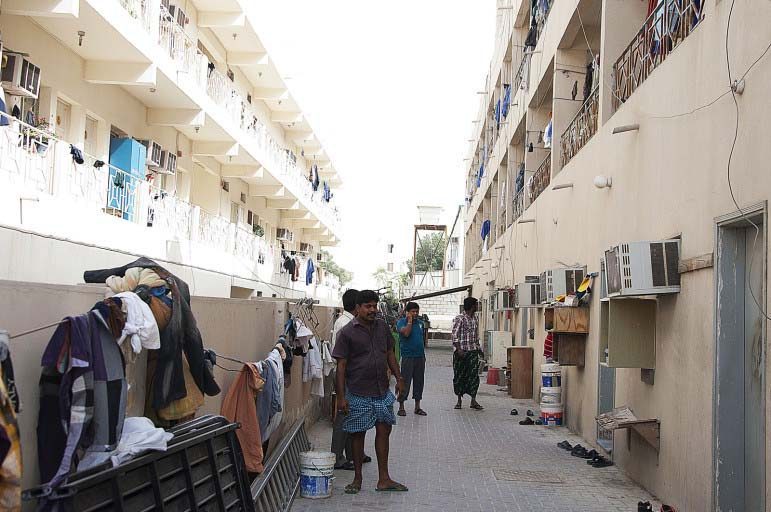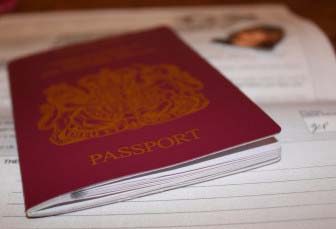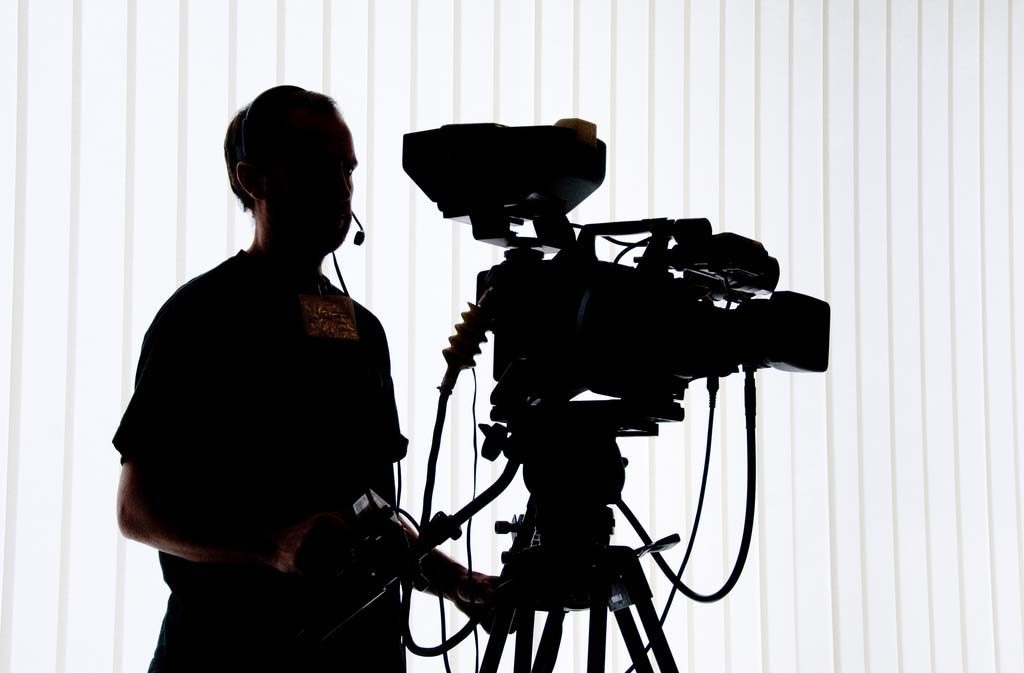
Updated at 12:20pm to include comments from Qatar’s Government Communications Office.
For at least the second time this year, a foreign journalist reporting in Qatar has been arrested and detained by police after visiting the Industrial Area to investigate the living conditions of migrant workers here.
Mark Lobel, a BBC journalist based in Dubai, was one of roughly a dozen international reporters and photographers invited by the Ministry of Labor to visit several worker accommodation developments in Qatar earlier this month.

Speaking to Doha News, Lobel said he was pulled over while driving and arrested shortly after 4pm on Saturday, May 2 and then held by officers from Qatar’s Criminal Investigations Division (CID) until 4am on Monday, May 4.
He said he was then placed under a travel ban and prevented from leaving the country until Sunday, May 10. However, the crew’s equipment and hard drives have still not been returned.
Following news of his arrest, the Qatar government accused Lobel of breaking the law by trespassing on private property.
Lobel’s detention is similar to what happened to German broadcast journalist Florian Bauer, who was arrested and detained by Qatar police in late March. After Bauer made his case public more than a month later, local authorities noted that he had been filming without a permit.
Bauer admitted that he did not have official permission to film, despite submitting multiple requests in the weeks leading up to his visit. However, he also said that the police never asked him if he possessed a permit as they were arresting him.
What happened
Lobel arrived in Qatar several days before the start of the official media tour, which was led by the Ministry of Labor and Social Affairs as well as the recently created Government Communications Office.

He added that he was followed by the authorities from the moment he cleared immigration at Hamad International Airport, based on surveillance photographs that were later shown to him.
The reporter said that on May 2, he was arrested with his driver, a camera operator visiting Qatar and an expat journalist based in Qatar after eight white vehicles surrounded their car and forced them onto a side road.
After being held for nearly 36 hours, the journalists were released. However, the police continued their investigation by bringing in at least one locally-based journalist in Qatar for questioning, who said they were accused of “defaming the country.”
Wrong visa
In a report published in the BBC today, Lobel said authorities did not initially accuse him or his crew of anything directly, but instead “asked over and over what we had done and who we had met.”
However, he was later told at the public prosecutor’s office that he was working outside the parameters of the tourist visa on which he had entered Qatar.
“I explained there was no other visa you can get,” he told Doha News, noting that he had followed the instructions of the government officials who organized the media tour for entering the company.

That included providing his passport details, which is how he suspects he was flagged as he entered the country.
“This was not a sneaky trip. The only reason we were there was because we were invited.”
According to the locally based expat journalist who was brought in for questioning following Lobel’s release, other reporters on the government’s media tour also entered on tourist visas.
However, Qatar’s Government Communications Office did not raise the visa issue in a statement explaining the detention.
“The problems that the BBC reporter and his crew experienced could have been avoided if they had chosen to join the other journalists on the press tour,” said Saif Al-Thani, the head of Government Communications Office.
“By trespassing on private property and running afoul of Qatari laws, the BBC reporter made himself the story … We deeply regret that he was unable to report the real story, which is that the government and the private sector are making significant progress in efforts to improve the lives and the labour conditions of guest workers in Qatar.”
Media freedom questions
Speaking to Doha News on condition of anonymity, the foreign journalist based in Qatar added that the detentions of Lobel and Bauer show how it’s effectively impossible for a foreign reporter to work in Qatar while following the letter of the law.
Technically, foreign correspondents are supposed to register with Qatar News Agency and be hosted by a local organization, such as the country’s World Cup organizers.
The host pledges to be responsible for the journalist’s behavior, as well as how all the material they produce is used going forward.
The latter clause runs counter to the principles of journalistic independence and is impossible to comply with in practice, the locally-based source said.

Meanwhile, a filming permit is only given to foreign journalists for very specific and narrowly defined shoots, which would make it effectively impossible for an unaccompanied reporter to, for example, explore the Industrial Area with a camera, the journalist added.
“It’s clear that the government has little interest in allowing any press freedom (regarding) the labor issue, or any other globally relevant issue around Qatar unless it suits their interest.”
However, the country’s senior government leaders have a different message. Speaking to the Lobel after his detention, Abdullah Saleh Al Khulaifi – Qatar’s minister of labor and social affairs – said:
“Qatar is an open country forever, since ever … The shortcomings that I am facing, the problems I am facing, I cannot hide. Qatar is open and now with the smartphones, everyone is a journalist.”
Lobel also reported that FIFA is investigating the incident and told him that any “apparent restriction of press freedom is of concern.”
Lobel’s arrest, like the detention of Bauer earlier this year, will likely draw fresh international condemnation from rights advocates at a time when Qatar is actively working to improve the country’s image with the help of British public relations firm Portland Communications.
Thoughts?







